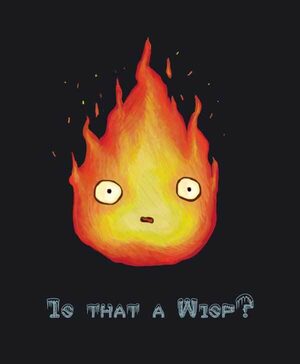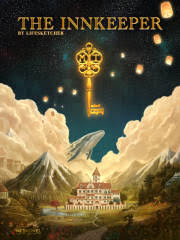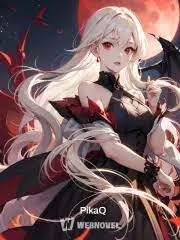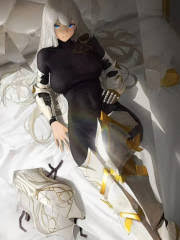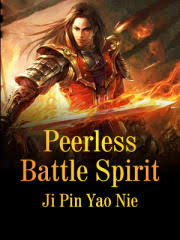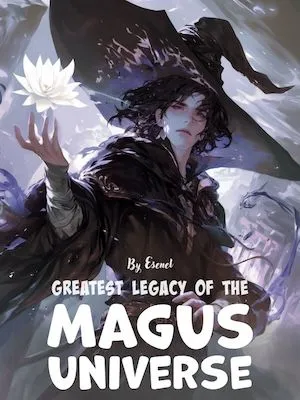The Story in 3 Sentences
Born as Krune, the weakest and most clueless wisp in a world that hunts his kind for power, he begins a desperate, solitary struggle for survival against impossible odds.
His journey takes a radical turn when he achieves human form and stumbles into human society, where his complete lack of social understanding becomes the catalyst for hilarious misadventures and unexpected, profound growth.
He evolves from a hunted speck of energy into a legendary figure, reshaping the very laws of his universe through sheer, unconventional brilliance and an unyielding will to protect his found family.
Why It Stands Out
1. The Zero-EQ Genius
Krune’s complete ignorance of human norms isn’t just a gag; it’s the engine of the entire narrative. His literal interpretations and social blunders force him to solve problems in ways no “normal” cultivator would, leading to wildly inventive cultivation breakthroughs and combat strategies that defy conventional wisdom. His weakness becomes his greatest, most unpredictable strength.
2. World-Building Through Alien Eyes
The novel’s greatest charm emerges after Chapter 20, when Krune enters human cities. The world isn’t just described; it’s experienced anew through his utterly alien perspective. Technology, social hierarchies, and even basic etiquette become sources of wonder, danger, and comedy, making the familiar feel fantastical and the fantastical feel grounded in his unique logic.
3. From Prey to Cosmic Architect
The story transcends the typical “weak-to-strong” arc. Krune’s goal isn’t merely to become powerful; it’s to understand and ultimately redefine existence itself. His progression from a wisp being hunted for its energy to a being who can modify the fundamental laws of realms provides a grand, satisfying arc that feels earned through his unique experiences and intellect.
Characters That Leave a Mark
There’s Feifei – Krune’s wife, whose interactions with him highlight his social growth and provide moments of genuine warmth and humor amidst the chaos, showing a softer side to his journey.
You’ll meet Laken, who is sort of Krune’s son and disciple, representing the legacy Krune builds and the bridge between his alien origins and the future generations he influences.
And Wang Fei? She’s Krune’s daughter, a key figure in his personal life who embodies the family he fought so hard to create and protect, grounding his cosmic-scale achievements in deeply human relationships.
The Flaws Fans Debate
The opening chapters are deliberately slow and cliché, a hurdle the author himself acknowledges, which can deter readers before the story’s true charm begins.
Some readers find the translation and grammar in earlier chapters to be rough or poorly executed, occasionally breaking immersion.
A segment of the fanbase feels that while Krune is brilliantly developed, some supporting characters lack the same depth and can feel generic, especially in the story’s first half.
Must-Experience Arcs
Ch. 20–100: The Human City Misadventures – Krune, newly in human form, navigates technology, social customs, and cultivation sects with zero emotional intelligence, leading to chaotic, laugh-out-loud scenarios that establish the novel’s unique comedic and world-building tone.
Ch. 500–800: The Laws of Reality – Krune’s understanding of energy and cultivation deepens to a metaphysical level, allowing him to challenge and begin modifying the fundamental rules of his world, shifting the narrative from personal survival to cosmic influence.
Ch. 1300–1580: The Final Ascension – Krune confronts the ultimate limits of existence, culminating in his transformation into a being capable of shaping entire realms, bringing his journey from the weakest wisp to a foundational pillar of the universe to its epic, satisfying conclusion.
Killer Quotes
“Say your goodbyes because we are leaving in a few minutes, by the way, my full name is Su Feng.”
“Why do you think you can see through the other’s skills flaws and give them pointers on how to improve their own abilities? That’s the power.”
Cultural Impact
The novel developed a dedicated cult following, particularly among readers who appreciate its unique premise and the protagonist’s unconventional problem-solving.
Fans frequently cite Krune’s social blunders and literal interpretations as some of the funniest and most memorable moments in the xianxia genre.
Its reputation for a slow start but incredible payoff became a common talking point in online forums, with readers often urging newcomers to “just make it to Chapter 20.”
Final Verdict
Start Here If You Want:
A hilarious, unconventional take on the cultivation genre where the hero’s greatest weapon is his complete social ineptitude.
A story that evolves from a simple survival tale into a grand, universe-shaping epic with genuinely inventive power systems.
A protagonist whose journey from absolute zero to cosmic significance feels both wildly imaginative and deeply satisfying.
Study If You Love:
Narratives that use an outsider’s perspective to deconstruct and rebuild world-building, making the familiar seem alien and wondrous.
Stories where character flaws are not just overcome but weaponized and turned into unique strengths that drive the plot.
The subversion of xianxia tropes, particularly the “underdog” narrative, by creating a protagonist whose power stems from a fundamentally different way of thinking.
Avoid If You Prefer:
Stories that hit the ground running; the slow, cliché-ridden beginning is a significant barrier for some readers.
Flawless prose and translation; the quality, especially early on, can be inconsistent.
Large, deeply developed ensembles; the focus remains intensely on Krune, and while key supporting characters exist, they may not receive the same level of intricate development.
